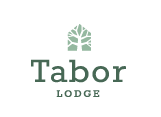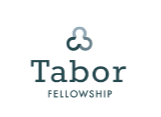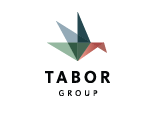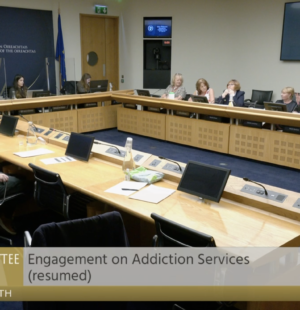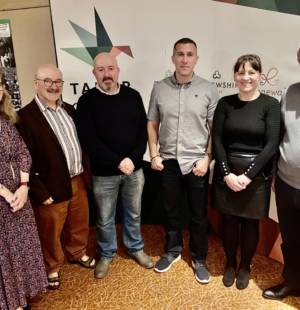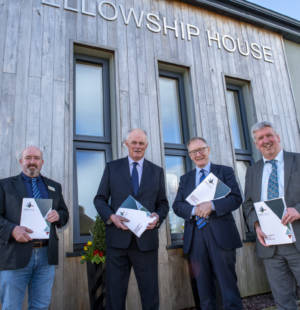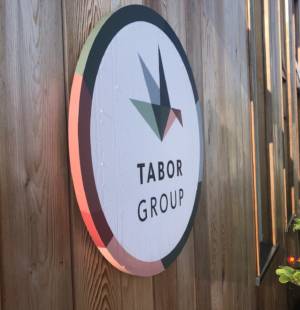Opening up to friends and family
Christmas time should be family time; a chance for everyone to relax and catch up on all the news.
That time is so precious and the last thing you want to do is upset anyone or kill the good mood by opening up about your addiction. However, it’s actually the perfect time to open up to friends and family about the challenges and struggles you face.
People often need time to process what’s happening with you, time to talk, to ask questions. What better time than when everyone is together at Christmas?
Let’s talk
Revealing your addiction can engender feelings of shame or embarrassment on your part, while simultaneously inducing a sense of fear or resentment in your loved ones.
Still, telling them is so important for many reasons, one of which is that maintaining a disposition of secrecy can precipitate a relapse into the world of addiction.
Feel the fear and do it anyway
Explaining addiction to loved ones is challenging, but necessary if you want to begin and complete the recovery process in a healthy, transparent way.
Addiction is defined as the inability to stop engaging in a behaviour, irrespective of the adverse consequences that result from the conduct.
Addiction can be physical or psychological; and is often both. This is especially the case with addictions to substances such as alcohol and illicit drugs. Although many people think of drugs and alcohol when the term ‘addiction’ is used, there are a plethora of other addictions an individual could have; including gambling, pornography, food, gaming and the internet. It remains a profound and potentially problematic issue in this contemporary era.
Opening up – the benefits
- Family co-operation removes the stigma that causes many addicts to refuse treatment out of fear of being judged. Action must be taken and the sooner the better.
- Family members must understand what led to the development of the addiction. When one family member is addicted, for example, he or she is generally looked at as being the sole cause of the problems related to the substance use disorder. The reality is that addiction might itself be a symptom of other physical or emotional complications that could be relieved with family co-operation.
- Family members who aren’t educated regarding addiction may form unrealistic expectations that can lead to disappointment. An actively addicted person may be unable to accomplish his or her share in household duties. These duties may include the responsibility to provide emotionally or physically for others in the family circle. The resulting frustration will only distract from progress.
- Family members who know what triggers relapse can help recovering addicts to stay sober.
- Opening up to family and friends might be of practical help to highlight and work towards individual career, relationship, education, health, or other goals.
- Families draw closer together when the truth is out there. Family members who recognise negative behavioural patterns and correct them bring joy to those who love them.
- Economically speaking, family involvement is usually the way to go if you are seeking residential treatment.
How to explain your addiction
If you feel uncomfortable, or don’t have the knowledge necessary to talk about your addiction with your loved ones, think about speaking with an addiction counsellor first.
These individuals have education and experience in matters of addiction, and they will likely be able to give you advice regarding how to talk with your family and friends about your struggles.
Develop a plan of action
Know what your plan is before speaking to them. Whether your recovery strategy includes detox, residential treatment, extended treatment or a combination of many different ideas, it’s important that your loved ones know that you have a plan for recovery.
Warn them
Let your loved ones know what types of actions, attitudes, objects and situations precipitate or trigger your addiction. This will help prevent them from becoming ‘enablers’, who in some way facilitate the perpetuation of your addiction.
Acknowledge and apologise
Apologise for anything you have done that has detracted from the quality of life of your loved ones. Because addiction is a problem that affects everyone in the addict’s world, there are possible actions and attitudes you’ve manifested which have adversely affected your friends and family emotionally, physically, and/or spiritually.
Be honest
Sugar-coating your addiction, or downplaying how profound it is, will not help your friends and family understand your issue and subsequently play a role in helping you recover.
If you’re currently still purchasing illegal drugs, say so. If your alcohol addiction is so strong that you feel you can’t go out with your loved ones to a bar on a Friday night, tell them.
This type of honesty will be the key to enabling your loved ones to help you get on the path to permanent recovery.
Tabor Group is a leading provider of residential addiction treatment services in Ireland. We provide support and care to hundreds of clients suffering from addictions to alcohol, substances, gambling and eating disorders. For more information on Tabor Group’s services click here.
Recent Posts
- How to Help a Loved One Struggling with Addiction
- Tabor Group Calls for Urgent Funding to Address Growing Addiction Crisis
- Forgiveness in Recovery
- National Drugs Strategy launches interactive map to facilitate access to 442 publicly-funded drug treatment
- Statement from Colette Kelleher, CEO Tabor Group
Categories
Archives
- September 2024
- July 2024
- June 2024
- January 2024
- December 2023
- August 2023
- July 2023
- May 2023
- April 2023
- March 2023
- January 2023
- October 2022
- September 2022
- August 2022
- July 2022
- June 2022
- May 2022
- April 2022
- March 2022
- February 2022
- January 2022
- December 2021
- November 2021
- October 2021
- September 2021
- August 2021
- July 2021
- June 2021
- May 2021
- April 2021
- March 2021
- February 2021
- January 2021
- December 2020
- November 2020
- October 2020
- September 2020
- August 2020
- July 2020
- June 2020
- May 2020
- April 2020
- March 2020
- February 2020
- January 2020
- December 2019
- November 2019
- October 2019
- September 2019
- August 2019
- July 2019
- June 2019
- May 2019
- April 2019
- March 2019
- February 2019
- January 2019
- December 2018
- November 2018
- October 2018
- September 2018
- August 2018
- July 2018
- June 2018
- May 2018
- April 2018
- March 2018
- February 2018
- January 2018
- December 2017
- November 2017
- October 2017
- September 2017
- August 2017
- July 2017
- June 2017
- May 2017
- April 2017
- March 2017
- February 2017
- January 2017
- December 2016
- November 2016
- October 2016
- September 2016
- August 2016
- July 2016
- April 2016
- March 2016
- December 2015
- March 2015
